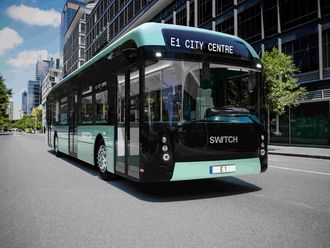
Dubai: The immediate focus of the revised UAE’s Commercial Companies Law will be on new businesses being launched in the country through 100 per cent ownership of local operations. The immediate - and biggest – gains should be for tech and digital-focussed businesses that want to set up in the mainland and not have to go through free zones for full ownership.
While June 1 has been set as the date for the revised Law to be fully effective, investors and business owners will need to closely watch for add-on developments. The UAE Cabinet will establish a committee, comprising representatives from each of the Department of Economic Development entities, which will be responsible for determining:
* A list of commercial activities considered to have a strategic impact on the UAE’s economy (Strategic Impact List); and
* Additional licensing controls to impose on companies undertaking commercial activities in sectors listed in the Strategic Impact List.
“The negative list – which will not be abolished even with recent amendments - contain important sectors such oil and gas, telecom and utilities,” said Bahjat Abou Zeyd, Senior Associate – Corporate at the law firm of Abdulla Alawadi & Associates. “[These sectors] will remain subject to the foreign ownership restrictions.”

To qualify for foreign ownership exemption, the applicant needs to meet various requirements such as share capital contribution, use of technology and employment of UAE nationals
Landmark upgrade
Even then, the changes to the UAE Commercial Companies Law is comprehensive enough, and addresses the need to get foreign investments and new business activity kick up a gear or two. Most important, it gives clarity to what prospective business owners can expect to do.
According to Paras Shahdadpuri, Chairman of Nikai Group former head of Indian Business Council, “Expatriates have been investing 100 per cent in their businesses, but have had to write in their licenses 51 per cent in the name of Emirati partners. Investors always felt the threat of the sword of Damocles and could never bring in more investments freely.”
Positive, negative
The ‘negative list’ spells out those sectors where 100 per cent foreign ownership is not allowed. “We need to see the practical implementation from the respective emirate’s Department of Economic Development committees would determine the foreign ownership in various activities,” said Atik Munshi, Managing Partner at the consultancy Enterprise House.
“It is anticipated that activities like ‘commercial agency’, banking, insurance, labour supply, etc., would be considered activities of strategic importance and foreign ownership is likely to be restricted here. But considering UAE’s open FDI policy, these too may be revised in future.”

Implementation is dependent on a Committee under the UAE Cabinet resolution; the Committee will have representatives from the Economic Departments to decide on the level of foreign shareholding in a entity. In principle, the Economic Departments will determine the percentage of foreign shareholding based on its activity and merits
Await committees’ inputs
For now, prospective investors and business owners will have to wait for the DED committees to arrive at their recommendations on what those shareholding should be. But whatever be their decisions, it will in tune with the once-in-a-generation initiatives the UAE introduced recently on ‘golden visas’, selective citizenship rights, and special category visas that allow an individual to be based in the UAE and work for any enterprise anywhere in the world.
Shahdadpuri believes this sets up the UAE to make full use of post-pandemic recovery in global business sentiments. “Entrepreneurs are looking for investments in safer countries like the UAE. It has the infrastructure and a high-quality living environment - the UAE can be the no. 1 destination for investments.”

The UAE has shown its resilience during one of the most challenging periods and has been a hotbed for investment. As more people look to make the UAE their home, initiatives such as granting UAE passports, Golden Visas, Retirement Visas and full foreign ownership only make more people think of it as their long-term home.
Property boosters
According to Faisal Durrani, Head of Middle East Research at Knight Frank, said: “The federal and local governments across the UAE continue to unveil key policy initiatives that will be crucial to create future demand for residential and commercial property. Confirmation of the 100 per cent company foreign ownership law will undoubtedly have a significant impact on office space in Dubai and Abu Dhabi, which are still experiencing quieter conditions in the aftermath of the pandemic.
“With this landmark change, the UAE has unlocked its potential to emerge as a key contender for global business headquarters that were previously confined to free zones in the country.”

At the small end of the business spectrum, fresh initiatives such as ‘Dubai Next’ will certainly help to position Dubai as an attractive option for global startups looking for a dynamic launch location. These announcements are the perfect complement to the raft of residency options made available over the course of the last 12-months, aimed at attracting - and retaining - talent, as well as boosting business confidence
Retrospective effect?
How the changes will apply to existing businesses when it comes to 100 per cent ownership is the other big question. In recent years, global businesses have secured those rights for their UAE operations, through the likes of Aster in healthcare, Malabar Gold & Diamonds in retail, and MARS, the makers of the chocolate brand.
This will continue to be done on a case-to-case basis, sources say. For now, there is “no further guidance on how to move forward and remove local partners from LLCs and by which instrument it should be made,” said Abou Zeyd at Abdulla Alawadi & Associates.

Implementing progressive decisions based on sound regulatory and legislative mechanisms are paramount to strengthening the nation’s global appeal among residents, entrepreneurs, and foreign investors alike

We anticipate a strong surge in FDI as those businesses previously somewhat reticent to have a local partner may now have the opportunity to open a local business with 100% foreign ownership. We eagerly await the chance to review the finalized list of activities and industries that will be eligible
Check valuations
Until the time more updates are provided, a few of these existing businesses and their owners would be thinking of their ‘enterprise value’ – and what they would have to pay their local partner to buy out his stake.
“The valuation of shares-in-kind has been a matter of debate since long,” said Munshi. “As per the new amendment, the onus of such valuations is with the founders’ committee.
“Many entities would like to take the advantage by increasing the foreign shareholding in their LLCs. In event of a transfer of shares from the UAE national partner to the foreign shareholder, valuations of those businesses will play a key role. Considering the amicable relationships with the UAE national partner, the matter, in most cases, is expected to be smooth.”

Over the past year, the Government – and individual emirates – has announced measures aimed at enhancing the UAE’s attractiveness to foreign capital and talent. The rapid implementation of these measures bodes well for the country’s ability to benefit from a strong global economic recovery








